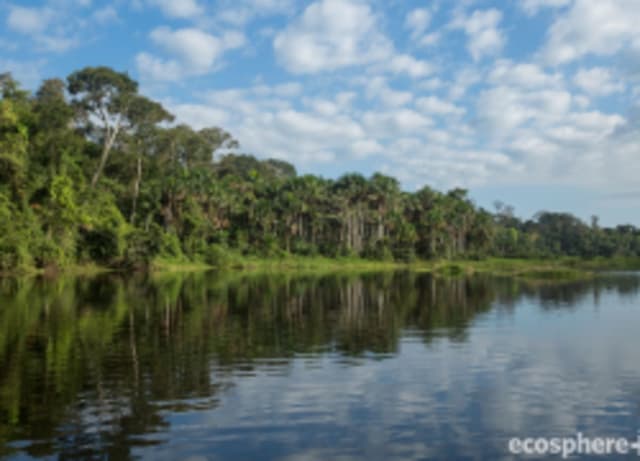Go the extra mile
Towards a cooler planet
Climate action for the ocean in the US: save marine life today
25 January 2023
The world is facing a significant crisis due to climate change. Protecting our oceans is now more urgent than ever. In the United States, climate change is harming marine life, disrupting the natural systems of our oceans. However, by working together, we can make a real impact and safeguard our oceans for the future.
Our oceans are essential to the health of our planet. Marine life, such as coral reefs and whales, plays a crucial role in sustaining ecosystems. These systems regulate the climate and provide vital resources. As climate change increasingly affects these ecosystems, we must act swiftly to protect our oceans and the life they sustain.
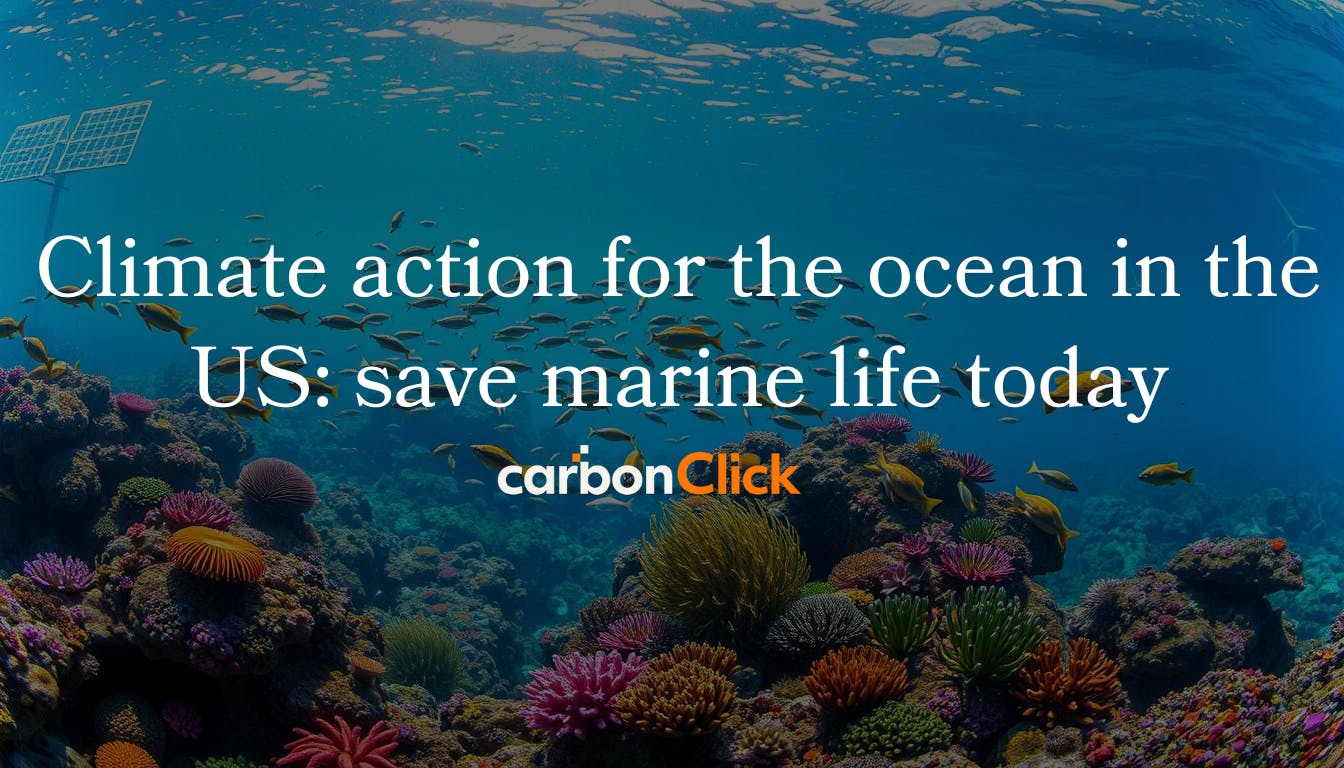
Understanding climate change and its impact on oceans
The need for action on climate issues is clear, and it is vital for the health of our oceans. As temperatures rise and carbon emissions increase, marine ecosystems are facing significant challenges. The USA, with its extensive coastlines and vibrant coastal areas, is deeply impacted by these changes.
Rising sea temperatures harm marine life in various ways. Coral reefs, which are crucial for countless species, are bleaching at an alarming rate. This loss disrupts food sources and habitats for numerous marine creatures. Ocean acidification, driven by excess carbon dioxide, also endangers shellfish and other organisms, causing further disruption to food chains.
These changes affect more than just the marine environment. Coastal communities, which depend heavily on the ocean, face substantial risks. Storms, rising sea levels, and eroding coastlines threaten their homes and livelihoods. This underscores the importance of robust measures and sustainable strategies in the USA to address these challenges.
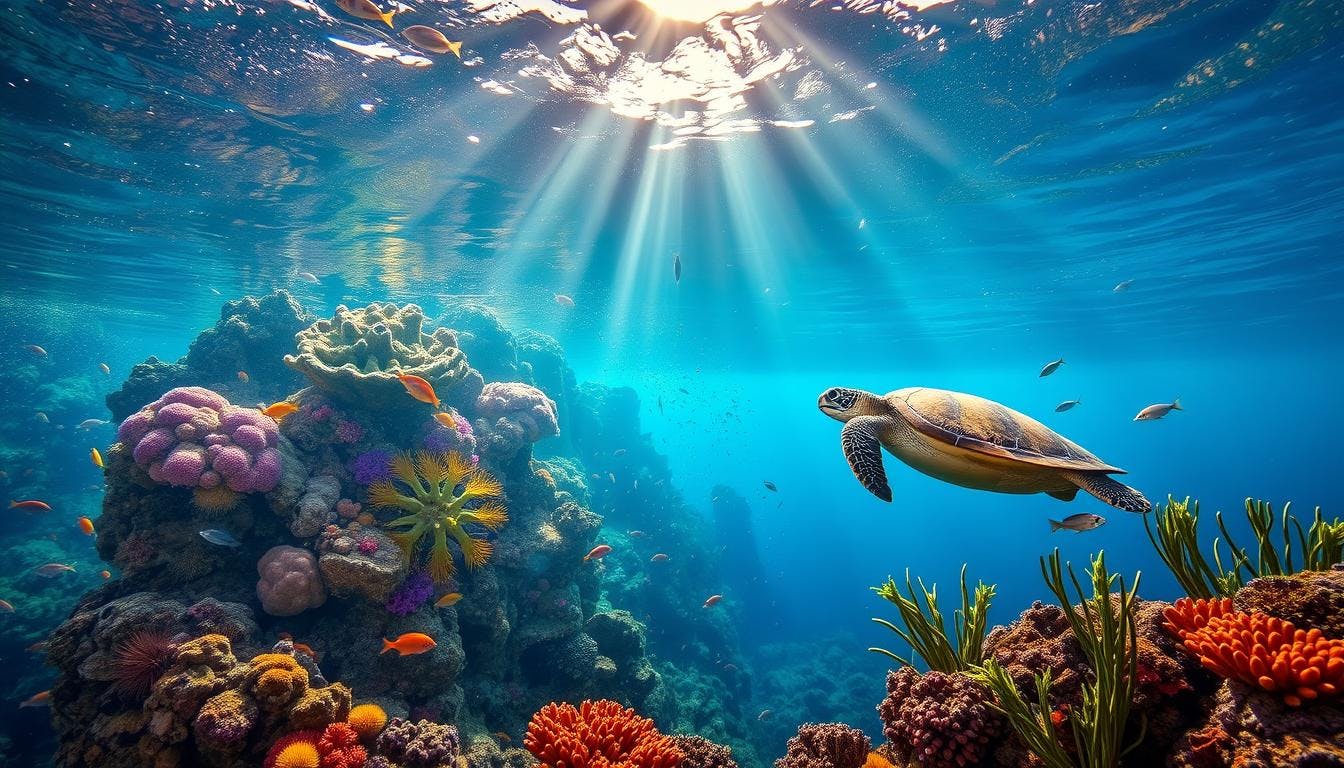
The importance of marine life to our planet
Marine ecosystems are essential to maintaining a healthy planet. They encompass everything from vibrant coral reefs to flourishing kelp forests. These areas play a crucial role in supporting the natural environment and its ability to adapt to climate change.
The oceans are teeming with life that influences weather patterns. For instance, tiny plants called phytoplankton produce a significant portion of the world's oxygen. They also absorb carbon dioxide, contributing to the regulation of atmospheric levels.
Places such as the kelp forests along the US Pacific coast are equally significant. These habitats provide shelter for a wide variety of species, from fish to whales. Protecting these environments strengthens ecosystems and ensures their resilience.
Current climate action initiatives in the US
The United States is addressing the climate crisis with collaborative efforts from the government, NGOs, and the private sector. They are focusing on renewable energy, transitioning to a sustainable economy, and adapting to the challenges of climate change.
The US is making significant progress in clean energy adoption, with wind and solar power becoming increasingly widespread. This transition reduces pollution associated with electricity generation.
The country is also taking measures to safeguard its oceans. It is establishing marine protected areas and addressing overfishing. These initiatives aim to support marine life and preserve ecosystems.
Through combined efforts, government, NGOs, and businesses are working together to create meaningful change. Their collective actions strive for a sustainable future for our oceans.
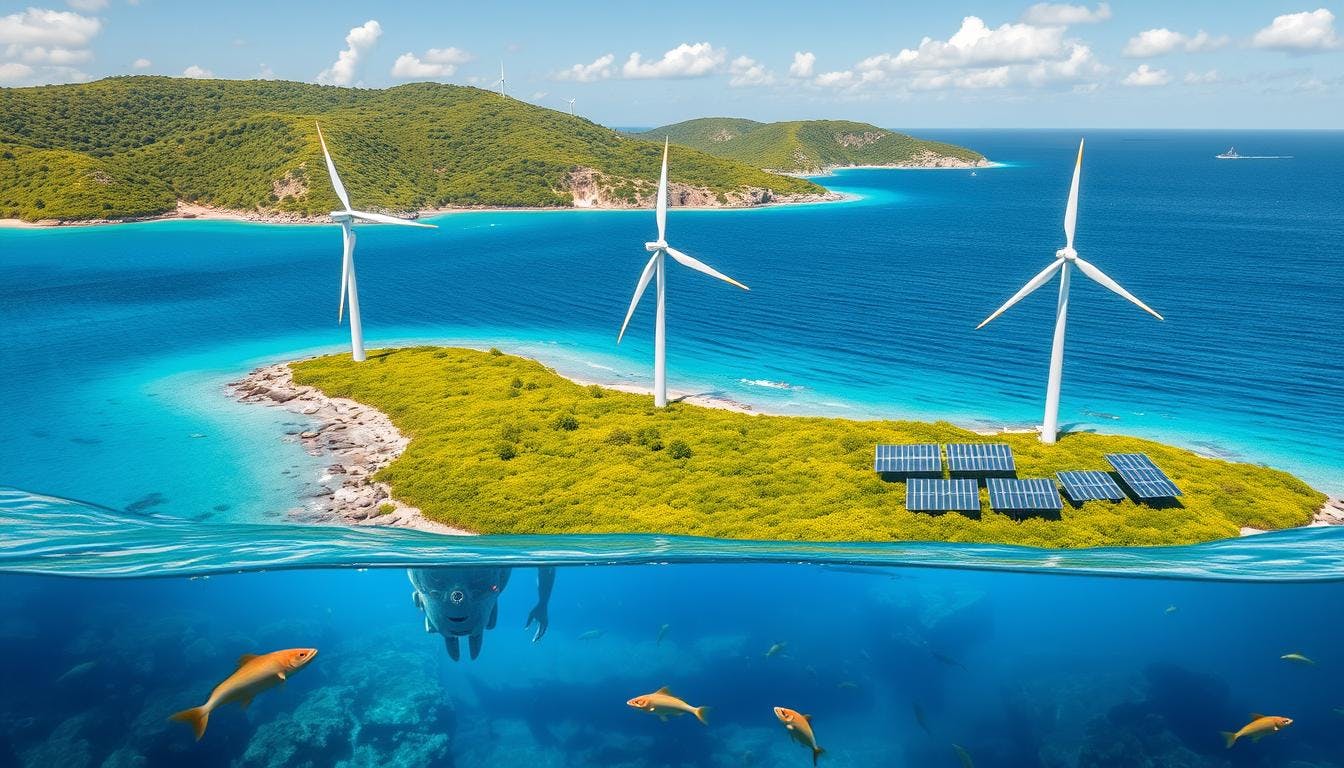
Engaging communities in ocean conservation
Coastal communities in the United States are working tirelessly to maintain healthy oceans. They are engaged in grassroots initiatives and educational programmes, which are vital for conservation and sustainable development across the country.
In California, the Surfrider Foundation is making a significant impact. Their volunteers participate in beach clean-ups, removing large amounts of plastic waste to safeguard marine life. They also run initiatives such as "Rise Above Plastics," educating people about the dangers of single-use plastics.
On the East Coast, the Waterkeeper Alliance is mobilising communities. They focus on monitoring water quality and reporting pollution, empowering local residents to take an active role in protecting their coastlines. This approach contributes to addressing environmental challenges and promoting conservation throughout the United States.
These grassroots efforts highlight the power of community involvement in ocean conservation. They foster a sense of responsibility for marine environments, which is crucial for sustaining a healthy and resilient planet.
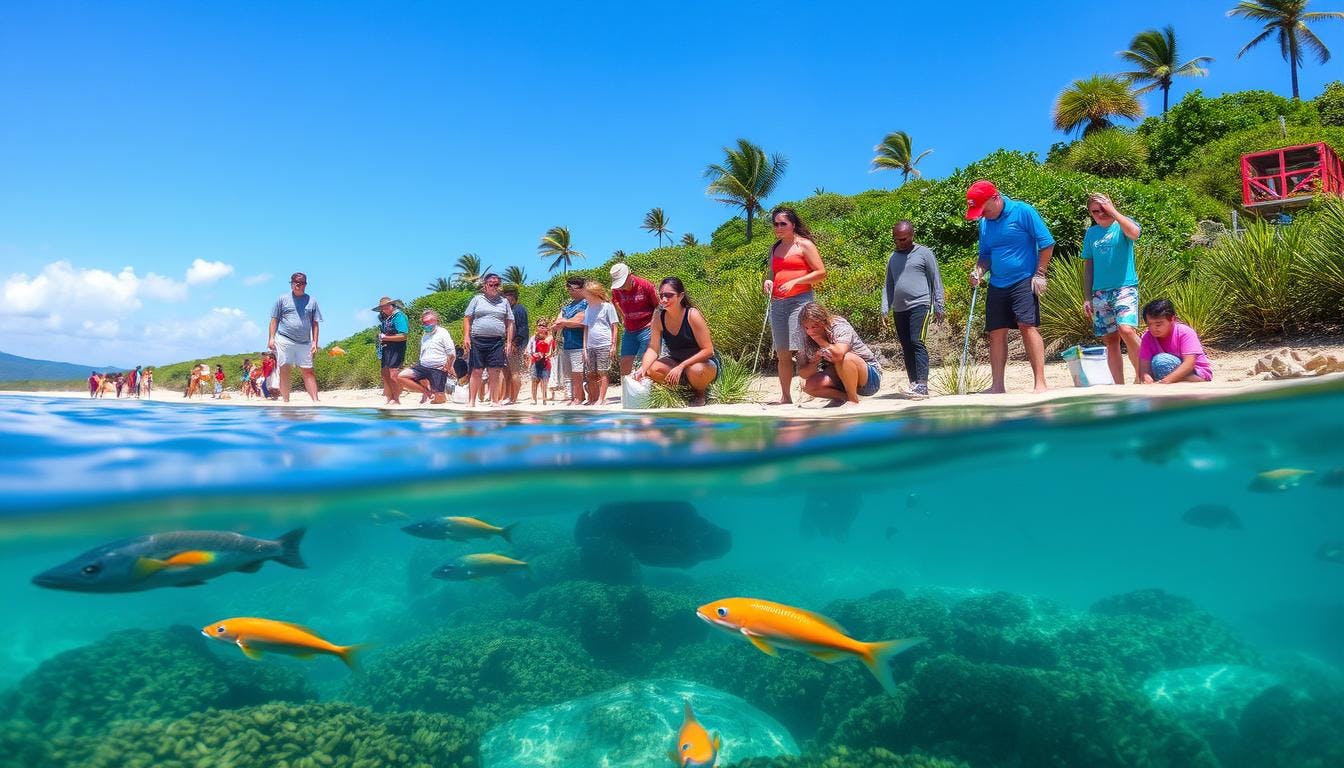
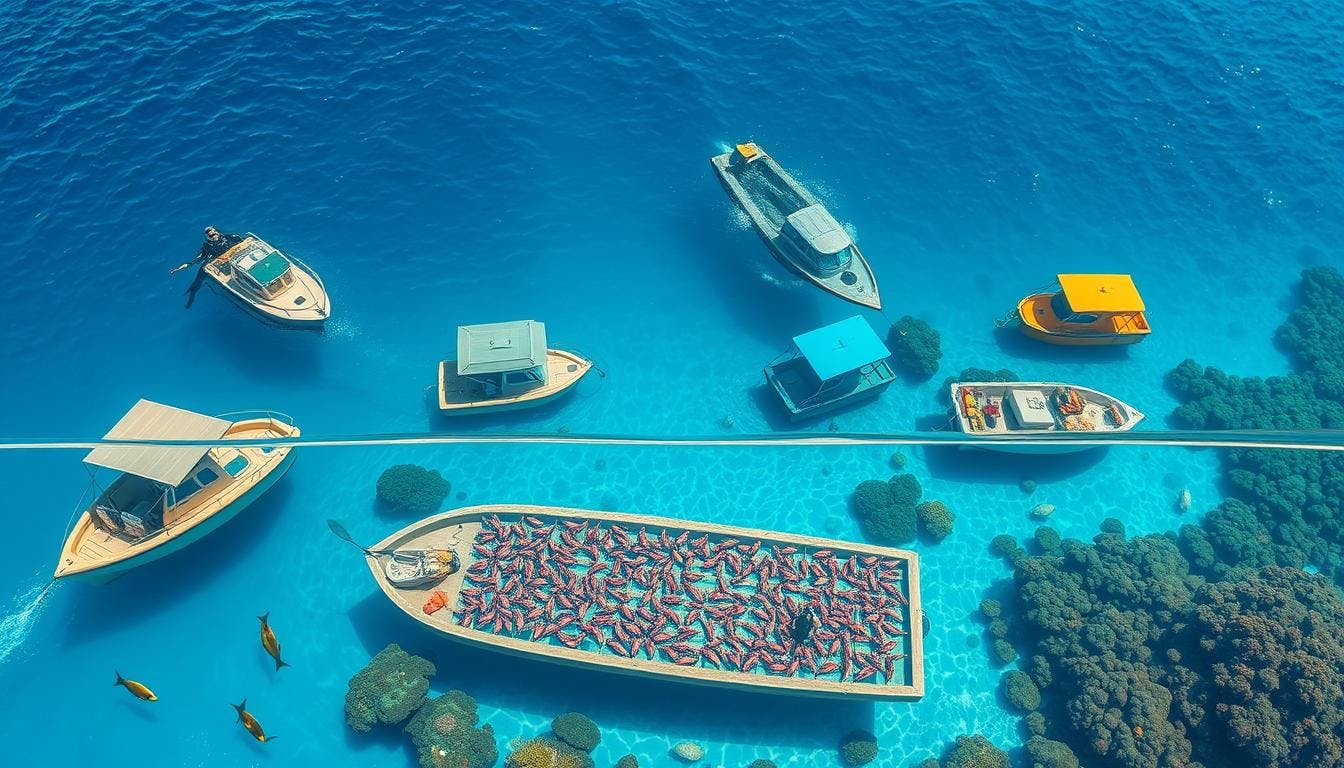
Innovations in sustainable fishing practices
In the United States, fishing is crucial for coastal communities and the sustainable economy. However, traditional fishing methods have harmed marine life, jeopardising the future of the industry. New, sustainable fishing practices are emerging, offering hope for the future.
Advanced technology, such as GPS and electronic monitoring, is revolutionising the fishing industry. These tools help track catches and protect marine life. Additionally, new fishing gear and techniques designed to reduce bycatch are being adopted to maintain healthy fish populations.
Rules and regulations are also playing a key role in making fishing more sustainable. Catch limits, seasonal closures, and protected areas help safeguard species and habitats. These measures, along with incentives for sustainable fishing practices, are driving the industry towards greater sustainability.
The US is addressing climate change while working towards a sustainable future. Innovations in sustainable fishing offer hope by meeting the needs of the fishing industry while protecting marine life, contributing to a more resilient economy and healthier coastal ecosystems.
The role of non-governmental organisations (NGOs)
In the effort to address climate change, non-governmental organisations (NGOs) have played a crucial role in the United States. These independent, non-profit groups are at the forefront of conservation efforts, advocating for environmental protection and climate resilience.
Their dedication helps raise awareness, shape policy, and initiate actions to safeguard the nation’s marine ecosystems.
The Oceans Conservancy is a leading NGO in ocean and coastal protection. For over 30 years, they have organised clean-ups, conducted research, and pushed for meaningful change. They have been instrumental in raising awareness about plastic pollution and encouraging communities to protect marine life.
The World Wildlife Fund (WWF) is also a significant player in the US. They collaborate with governments, businesses, and communities to implement conservation plans. Their focus is on protecting habitats and promoting sustainable fishing practices.
NGOs do more than protect the environment—they also help coastal communities build resilience. They teach communities how to adapt to climate change and reduce the risks associated with rising sea levels and extreme weather events.
Through collaboration and knowledge sharing, NGOs help communities find effective solutions. This strengthens the nation's resilience to climate-related challenges.
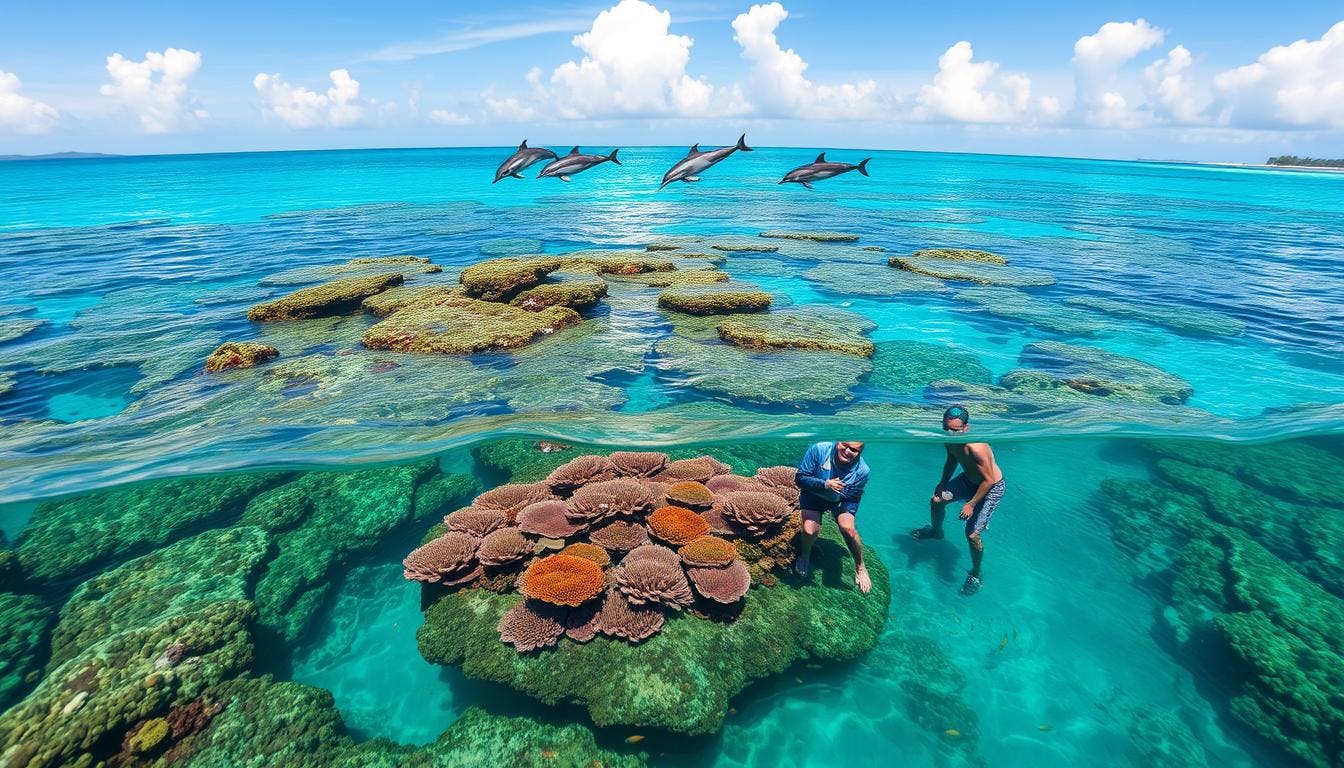
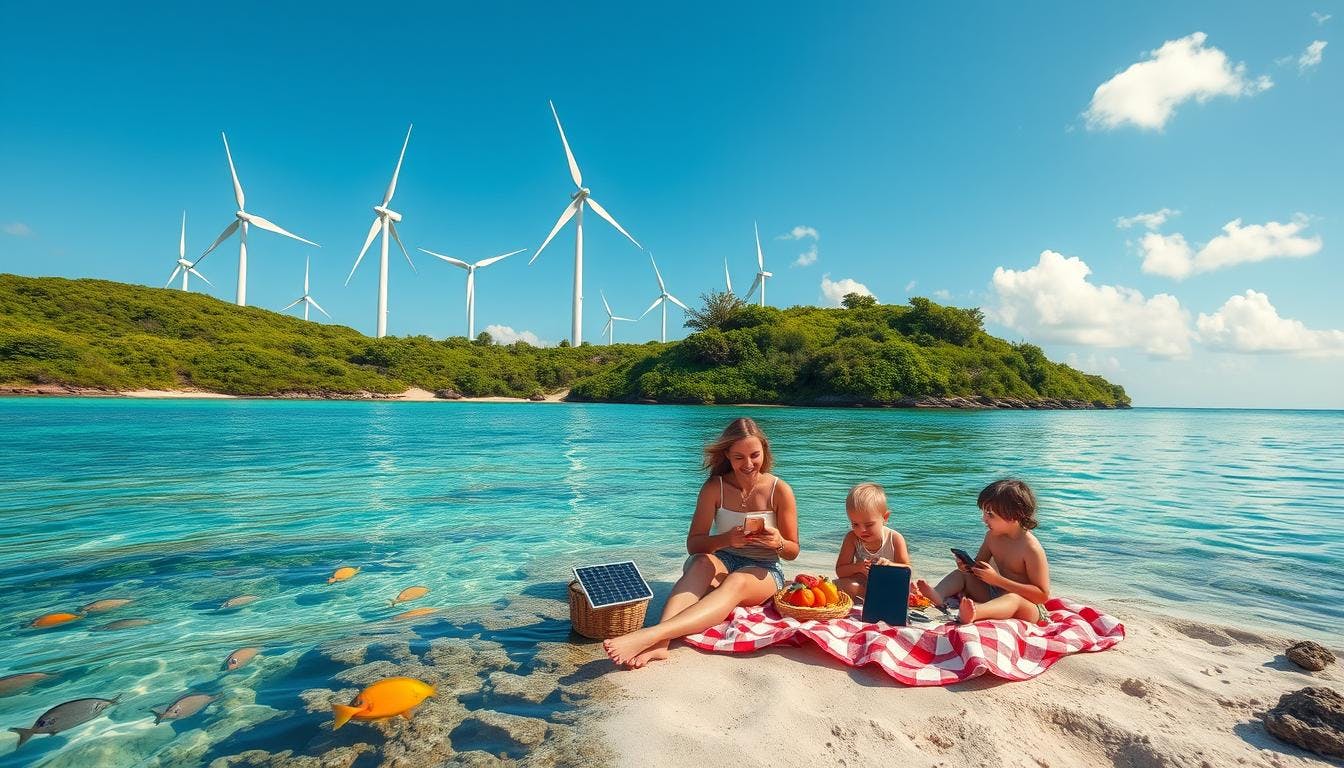
How individuals can contribute to climate action
Everyone can play a part in addressing climate change. Simple actions, such as using less energy and choosing sustainable transport, can have a significant impact. These steps help protect our oceans and the planet.
One key action is reducing energy consumption. Simple measures like using LED bulbs and turning off appliances when not in use can make a big difference. These actions lower carbon emissions and support the transition to clean energy.
Choosing sustainable transport is also crucial. Using public transport, cycling, or driving electric cars reduces emissions. These choices benefit the environment and promote healthier communities.
However, it’s not just about personal decisions. Getting involved in local and national initiatives is equally important. Participating in beach clean-ups, supporting environmental organisations, and advocating for ocean-protective policies can create real change. Together, we can make a lasting positive impact on our oceans and the planet.
The impact of plastic pollution on marine environments
In the United States, efforts to protect the environment and adapt to climate change have brought attention to the harmful effects of plastic pollution. Plastic waste, including single-use items and fishing gear, is suffocating our oceans and threatening marine life.
Each year, millions of tonnes of plastic enter the oceans, breaking down into microplastics that are consumed by marine animals, from tiny plankton to massive whales. This pollution harms these creatures and disrupts the food chain, which in turn affects the overall resilience of ecosystems.
Coastal regions are at the forefront of tackling plastic pollution. These areas are adopting new waste management strategies and encouraging people to reduce plastic use. Together, we can work towards eliminating plastic from our oceans, helping marine life thrive in a cleaner, more sustainable world.
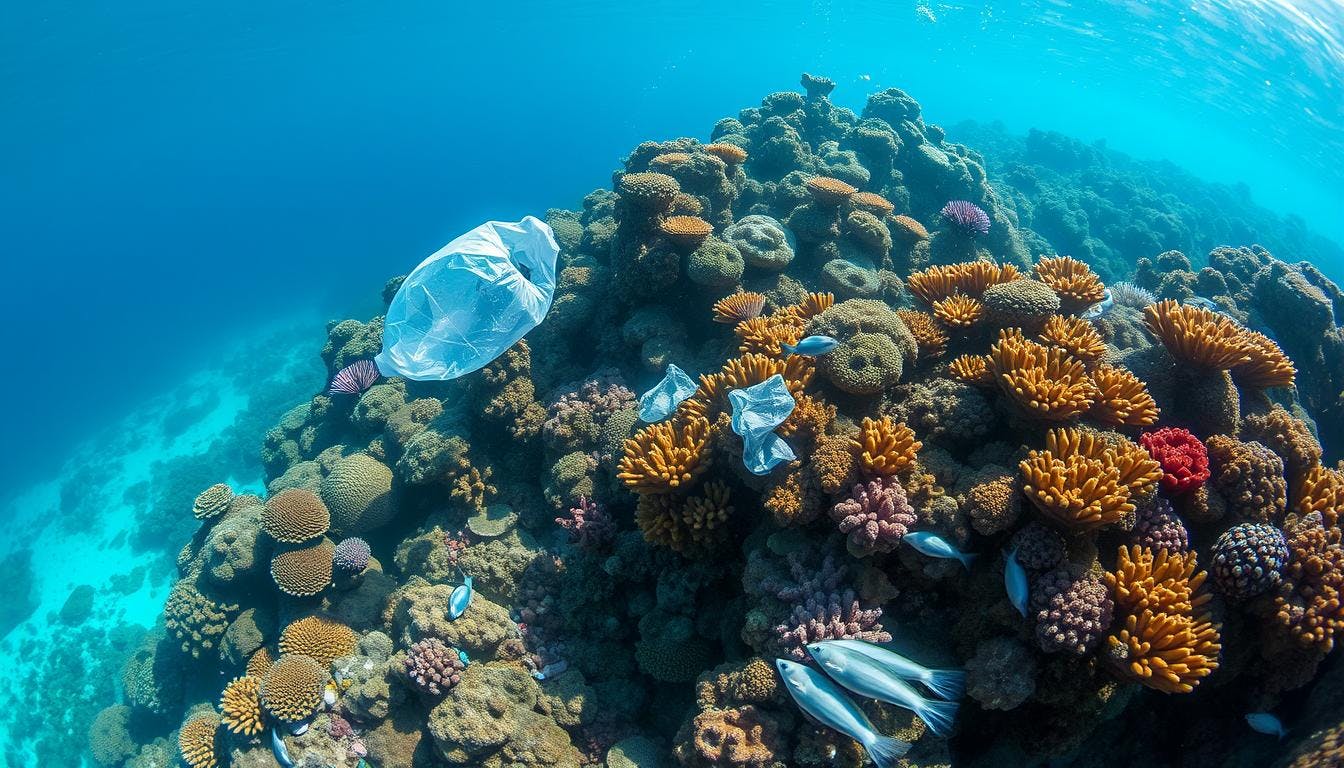
Looking towards the future: challenges and opportunities
The USA is working hard to address climate change. The future of ocean conservation presents both challenges and opportunities. Experts believe that new technologies, improved policies, and collaboration will be key to ensuring the sustainability of marine environments.
Transitioning to renewable energy sources, such as offshore wind and solar, is a significant step forward. These technologies can help reduce carbon emissions and protect the oceans. Additionally, sustainable economy strategies can create jobs and support coastal communities while preserving the environment.
However, achieving effective climate policies and shifting from traditional practices will require collective action. It is crucial for individuals, leaders, and experts to engage in dialogue and collaborate. In doing so, we can make meaningful progress and fully capitalise on opportunities to protect the oceans in the USA.
17 South Street
Auckland 1010
New Zealand
info@carbonclick.com- -
- X
Sign up. Be inspired. Get clicking.
Subscribe now to stay up to date with CarbonClick, carbon offsetting and climate action.
By signing up you agree to our Privacy Policy.

